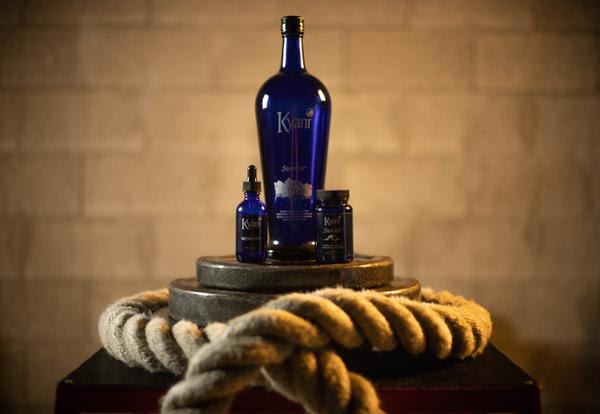Every so often I get into a debate..online and in person, most of the time I don't like to...I don't like to because people that argue don't really have all the info required to have a valid argument...so let me give you and example
I like to read PubMed all the time...for those that don't know...PubMed is a service of the US National Library of Medicine® that: Provides free access to MEDLINE®, the NLM® database of indexed citations and abstracts to medical, nursing, dental, veterinary, health care, and preclinical sciences journal articles. Includes additional selected life sciences journals.....
Because when science/(facts) is on your side...that is all that matters when you do what I do...
Love when studies come out showing omega-3 fatty acid intake has positive effects on muscle development...
It says:
Omega-3 polyunsaturated fatty acids (n3-PUFA) are recognized for their anti-inflammatory effects...but they took
Participants performed a single bout of resistance exercise, followed by biopsies at 15 and 18 hours post exercise...
These results demonstrate that n3-PUFA reduce mitochondrial oxidant emissions, increase postabsorptive muscle protein synthesis,
-
A 2012 study of more than 36,000 women was conducted to examine the relationship between dietary antioxidant levels and strokes. Rautiainen and Larsson (7) concluded that “dietary TAC (Total Antioxidant Capacity) is inversely associated with total stroke among cardiovascular disease-free [CVD] women and hemorrhagic stroke among women with a CVD history” (p. 335). The oxygen radical absorbance capacity (ORAC) was used to measure the antioxidant level.
According to studies conducted by Prior et al. (8), wild blueberries have the highest antioxidant capacity of 20 fruits tested for ORAC. Furthermore, a research team concluded that 1 cup of wild blueberries had more ORAC value than strawberries, plums, raspberries, or cultivated blueberries (9). Prior et al. (10) drew these conclusions from an antioxidant capacity study.
A 2007 study (11) determined that antioxidant levels in the body can be altered by diet, but the absorption of these antioxidants depends on the level of antioxidants, the adsorption/metabolism and the amount consumed. The research team recommended that individuals consume high antioxidant foods with each meal to prevent oxidative stress that occurs after a meal.
The Main Ingredient in Kyani Sunrise is Wild Alaskan Blueberries
===>> Nitric oxide (NO) is involved in adipose tissue biology by influencing adipogenesis, insulin-stimulated glucose uptake, and lipolysis.
Take some Nitric Oxide:
Within the cells of your body are the tiny mitochondria, the sites where food and oxygen is miraculously turned into energy for you. These microscopic parts of cells are actually major powerhouses. In addition to generating almost all of the energy you use, and controlling your cellular metabolism, the mitochondria are where all your fat is burned- both dietary fat and stored fat. Research suggests that nitric oxide not only stimulates the creation of new mitochondria13, but also may make each individual mitochondrion larger, which helps them to burn even more fat and therefore, could help you to lose weight.
NOW....I KNOW YOU WILL NOT TAKE THE TIME TO READ ALL THESE STUDIES...
AND JUST LIKE YOU DON'T READ THE STUDIES ON WHY ONE EXERCISE MIGHT BE SUPERIOR TO ANOTHER....BUT I DO...LET ME BREAK THIS DOWN
If YOU ARE HUMAN: You need 41 nutrients everyday
15 Vitamins ( Vitamins allow your body to grow and develop. They also play important roles in bodily functions such as metabolism, immunity and digestion. Including vitamins A, C, D, E, and K and B vitamins such as riboflavin and folate.)
15 Minerals ( Minerals are important for your body to stay healthy. Your body uses minerals for many different jobs, including keeping your bones, muscles, heart, and brain working properly. Minerals are also important for making enzymes and hormones)
8 Essential Amino Acids ( The human body uses amino acids to produce proteins, perform critical metabolic functions in the formation of other molecules and to produce energy. Some amino acids are synthesized by the human body, but theessential amino acids must be obtained from food.)
2 Essential Fatty Acids ( The body can synthesize most of the fats it needs from the diet. However, two essential fatty acids, linoleic and alpha-linolenic, cannot be synthesized in the body and must be obtained from food. ... Omega-3 and omega-6 fatty acids are important in the normal functioning of all tissues of the body.)
and oh yeah...Water (your body is kind of made of it)
If notice...fat burners, carb blockers, pre workouts, and what ever other assortment of supplements people want to take are not on that list...
IF YOU COME TO OUR GYM, IF YOU ASK ME, IF YOU READ ANY OF THE THINGS I WRITE VIA EMAIL, BLOG, SOCIAL MEDIA, MEDIUM...I ONLY TALK ABOUT 3 PRODUCTS...
*IF YOU ARE NOT DOING THIS, WE HAVE NO BUSINESS TALKING ABOUT ANYTHING ELSE...GO TO GNC or VITAMIN SHOPPE AND LET AN UNQUALIFIED SALES PERSON SELL YOU THE SUPPLEMENTS YOU WANT...*
AND YES...I AM YELLING!
Ok, I'm calm.....Let me give you some examples:
The Japanese have a life expectancy that is among the highest in the world. In fact, Okinawa, Japan’s famous “Island of Longevity,” likely has the world’s highest percentage of people over 100 years old.
Undoubtedly, there are many factors that play into the life spans of the longest-living populations, but evidence shows that they all have one thing in common: high dietary intake of an amino acid called taurine.
The connection between taurine and a long life is so strong that researchers have dubbed taurine, “The nutritional factor for the longevity of the Japanese.”
Taurine promotes cardiovascular health, insulin sensitivity, electrolyte balance, hearing function, and immune modulation. In animal research, taurine protected against heart failure, reducing mortality by nearly 80%.
Taurine is found abundantly in healthy bodies. However, certain diets, particularly vegetarian or vegan diets, lack adequate amounts of taurine. Disease states—including liver, kidney, or heart failure, diabetes, and cancer—can all cause a deficiency in taurine. And aging bodies often cannot internally produce an optimal amount of taurine, making supplementation vital.
A study released in November 2012 made the bold statement that taurine is one of the most essential substances in the body. The authors wrote: “Considering its broad distribution, its many cytoprotective attributes, and its functional significance in cell development, nutrition, and survival, taurine is undoubtedly one of the most essential substances in the body.”
Although it’s possible for your body to produce taurine on its own, you still need to obtain taurine through diet and supplementation in order to achieve optimal amounts of this essential nutrient.
Can I share MORE???
One of the ways taurine can help improve overall health is by fighting obesity. Obesity impacts every area of the body, especially because of the inflammation-generating abdominal fat stores. Human studies show that 3 grams per day of taurine for 7 weeks reduced body weight significantly in a group of overweight or obese (but not-yet-diabetic) adults. Subjects saw significant declines in their serum triglycerides and “atherogenic index,” a ratio of multiple cholesterol components that predicts atherosclerosis risk.
Given the above information about low taurine levels promoting obesity, it is clear that the low levels of taurine only serve to promote the interdependence of diabetes and obesity. Fortunately, human studies have shown that supplementing with just 1.5 grams of taurine a day can restore taurine levels to those in healthy control subjects, and additional animal research has shown that taurine supplementation can help prevent the onset of type II diabetes.....in adult diabetics, supplementation with 1.5 grams of taurine daily for just 14 days can reversediabetes-induced abnormalities in arterial stiffness and in the ability of the vasculature to respond to changes in blood flow or pressure
CAN I SHARE MORE
A study of patients needing coronary bypass surgery showed that consuming a liquid drink containing 3 grams of taurine, combined with 3 grams carnitine, 150 mg CoQ10, and basic multivitamin nutrients, reduced left-sided ventricular volume during the heart’s resting phase (diastole). This is important since an increased left-ventricular diastolic volume is the single greatest predictor of death in patients requiring bypass or stent placements. This makes taurine a vital component of such patients’ diets.
Taurine occurs naturally in food, especially in seafood and meat.The amount consumed in most societies, however, is quite low. The mean daily intake from omnivore diets was determined to be around 58 mg (range of 9 to 372 mg). In another study, taurine intake was estimated to be generally less than 200 mg a day, even in individuals eating a high-meat diet. According to another study, taurine consumption was estimated to vary between 40 and 400 mg a day.
Successful clinical studies with taurine have used daily doses of 1,500 to 3,000mg. It is challenging to obtain this amount of taurine from traditional dietary sources.
THERE ARE 1,000mg of TAURINE in 1 SHOT of KYANI SUNRISE...
WHAT ABOUT THIS
| Central Nervous System:
The human central nervous system consists of the brain and spinal cord. These lie in the midline of the body and are protected by the skull and vertebrae respectively. This collection of billions of neurons is arguably the most complex object known.
The central nervous system along with the peripheral nervous system comprise a primary division of controls that command all physical activities of a human. Neurons of the central nervous system affect consciousness and mental activity while spinal extensions of central nervous system neuron pathways affect skeletal muscles and organs in the body.
|
|
|
There's more to it than just that, though. Clinical trials (some preliminary) have been done suggesting the effectiveness of Omega-3 supplementation on: cancer prevention, cardiovascular disease prevention, reducing risk of stroke, brain/cognitive function, arthritis, immune function and possibly some psychiatric disorders. If anyone would like medical journal references, let me know
There are several ways to not meet your daily minimum quota for fat intake. If you're malnourished, for instance, eating food that is not necessarily nutrient dense, then you could be missing out on your essential fatty acids in addition to other important vitamins and minerals.
Wow! Fats Are Important! How Do I Get More?
There are several different sources of Omega-3 fatty acids; for example, soybean, canola and flaxseed (or chia) oil are all known as "botanical" sources of fat because they come from plants. However, there are also "animal" sources. The most widely available source of EPA and DHA is cold water, oily fish such as herring, mackerel, salmon, and sardines.
If you don't like fish, you can also try grass fed beef (which has a lower ratio of Omega-6: Omega-3 - this is a good thing), eggs (look for ones that are Omega-3/DHA enhanced), and some types of milk and cheese.
A study presented at the Annual Meeting of the American Society for Clinical Nutrition claimed that in women who were on very low caloric diets (who you'd expect would drop off in their rate of fat loss eventually), "Fats (Omega-3's) accelerated removal from adipose tissue indicates either a preferential step in Beta-oxidation or a defined need during supplemented fasting which exceeds its rate of provision from adipose stores."
This means that Omega-3 is very important during the fat burning process (Beta-Oxidation means that fatty acids are broken down to create a usable form of energy), and it's required even during states of fasting because it can help burn more fat.
Another way Omega-3 fatty acids help fat loss is by taking fats with your meals you're actually lowering the glycemic load of the meal; implying that the insulin spike that comes with food consumption won't be as high because fats help lower it.
Take some Nitric Oxide:
Within the cells of your body are the tiny mitochondria, the sites where food and oxygen is miraculously turned into energy for you. These microscopic parts of cells are actually major powerhouses. In addition to generating almost all of the energy you use, and controlling your cellular metabolism, the mitochondria are where all your fat is burned- both dietary fat and stored fat. Research suggests that nitric oxide not only stimulates the creation of new mitochondria13, but also may make each individual mitochondrion larger, which helps them to burn even more fat and therefore, could help you to lose weight.
Many of my patients and the people who come to hear my lectures on the effects and benefits of nitric oxide have told me about the weight they have lost on the proprietary blend of Noni extracts. Many of them were taking it for other complaints, but noticed the weight loss as a side bonus!
Beverly Morrison, one of my patients in my clinic in Massachusetts, had been trying for years to lose some weight, but could never get it off, or keep it off. She wrote of her experience: “After a five-year struggle with excess weight I lost 15 pounds in 60 days. I decided to have a mini-body cleanse supervised by Dr. Abbas Qutab, followed by a daily regimen of a nitric oxide supplement (the proprietary blend of Noni extracts). I took two droppers full three times a day. The mini cleanse provided the metabolic boost that my system needed and the nitric oxide gave me the sustained energy to increase physical activity. Months later, I am delighted that I have kept the weight off and exercise daily for at least 30 minutes.”
WELL THAT'S ALL I HAVE TO SAY ABOUT THAT...
AND THAT IS WHY I DON'T ARGUE....IF YOU HAVE A PARTICULAR BELIEF WHEN IT COMES TO THIS,
I HOPE YOU HAVE JUST AS MUCH DATA, SCIENCE AND FACTS SUPPORTING WHY YOU DO THE THINGS YOU, AS I HAVE SHARED WITH YOU ALL TODAY
--








